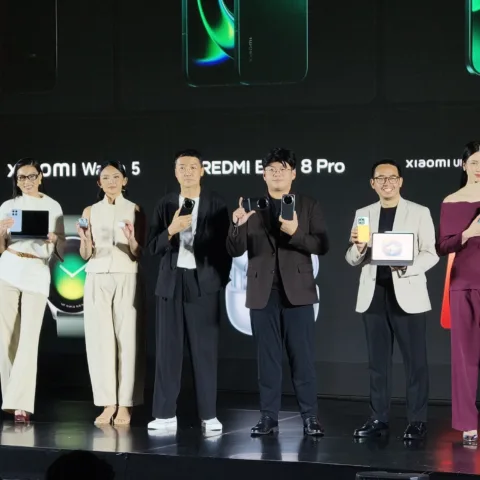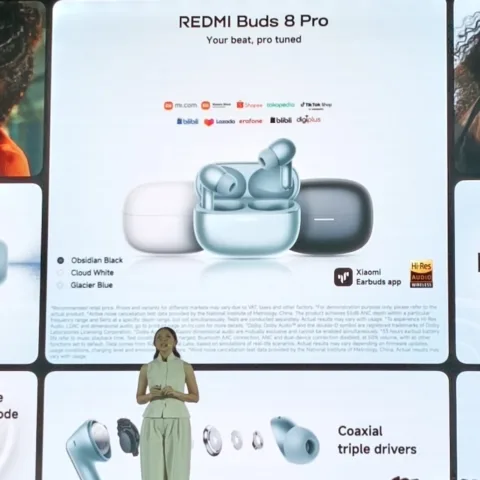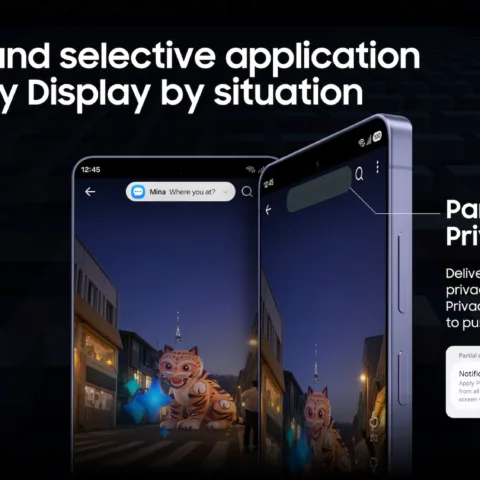 Apple opened its 23rd annual Worldwide Developer Conference in San Francisco on Tuesday by featuring what apparently is Siri’s latest ability, being a comedian. Siri cracked jokes ahead of Apple CEO’s Tim Cook’s appearance on stage, referring to many local characteristics such as finding 396 venture capitals for the thousands of developers currently attending the week-long event, and taking jabs at Facebook, Instagram and Samsung. This year’s WWDC sold out in 1 hour and 43 minutes.
Apple opened its 23rd annual Worldwide Developer Conference in San Francisco on Tuesday by featuring what apparently is Siri’s latest ability, being a comedian. Siri cracked jokes ahead of Apple CEO’s Tim Cook’s appearance on stage, referring to many local characteristics such as finding 396 venture capitals for the thousands of developers currently attending the week-long event, and taking jabs at Facebook, Instagram and Samsung. This year’s WWDC sold out in 1 hour and 43 minutes.
Tim Cook announced that Apple has over 650 thousand apps in the App Store, 225 thousand of which are specifically for iPads. The App Store has 400 million accounts, most of which has credit card details attached to them which puts the App Store among the largest online stores in the world, perhaps even the largest. It has had 30 billion apps downloaded and it exists in 120 countries, with 32 more to open later this month. The company also announced its latest line of notebooks as well as revealed more details on the next major versions of OS X and iOS.
Among the thousands of developers attending the event, you’d be hard pressed to find anyone from Indonesia, although our guest blogger Zeddy Iskandar obviously was there. There are very few iOS developers in Indonesia, given that this is a BlackBerry country and most mobile developers also prefer to develop for Android, simply because they don’t use Macs, don’t want to buy Macs, or can’t afford one. It’s also home to many Nokia developers who are also happy to develop for Windows Phone. As a result, WWDC isn’t on the radar of most software developers in the country.
At least one Indonesian software developer however, is very enthusiastic about iOS development but he had a difficult time trying to register for the event this year. Andri Yadi, founder of mobile app company DyCode, found out the hard way when he registered to this year’s WWDC.
Apple’s developer event had been a hot seller since the company announced the iPhone SDK in March 2008. Since then, the normally serene and spacious event suddenly was packed and buzzing with far more excitement than the consumer oriented Macworld Expo. Thanks to the iPhone, WWDC has always sold out and in much quicker pace every time.
While the 2008 event took over two months to sell out, the 2011 event took less than a day and tickets to this year’s event, which cost $1599 without airfare and accommodation, took less than two hours. This posed problems for developers around the world. Barely any iPhone developer who live on the US west coast could attend the event because the tickets were sold out before 7:00 a.m. California time.
Yadi, whose attempt to buy a ticket failed because apparently Apple required Indonesian developers to send purchase orders via a fax machine, wished that the event was more globally oriented.
Apple does have what it calls iOS Tech Talk, a tour by Apple’s engineers to several cities around the world talking about the things discussed and revealed during the year’s WWDC but the number of cities toured had diminished since it was first held in 2008. It started with 24 cities in 2008, but only nine hosted the tour last year. The events had always been packed but perhaps Apple had deemed its engineers to be more valuable at home than touring around the world giving free seminars.
According to Yadi, Apple should involve more engineers and find a larger venue to host the event to accommodate more developers. Unfortunately, at this year’s event, Tim Cook said that he had to close down Apple for the week because he brought along over a thousand Apple engineers to San Francisco.
As for the venue, it looks like Apple developers will have to accept being cramped inside the massive Moscone West for a few years until Apple completes its second campus in Cupertino which will house its own convention hall to host public events.
Developers who attend WWDC are bound by Apple’s non-disclosure agreement and until the NDA expires a few months later, they are forbidden to discuss all that was brought up at the event aside from the clearly public keynote speech.
This few months lead time provides a key competitive advantage for those who attend WWDC in developing their apps. Yadi would like to see live streams of WWDC sessions made available only to paid developers to allow access to those who cannot attend the event. Videos of the event are made available to paid developers but only weeks after the event had ended. Of course, the risk is that people may end up choosing to watch the streams instead of being at the event in person.
Holding WWDC in other parts of the world might sound exciting to developers but perhaps, as with the TechTalk tour, Apple may not be able to spare enough engineers to run such an event twice in a year. Unfortunately, it seems that International developers may have to accept the fact that the Worldwide Developer Conference is not so worldwide after all, at least for now.










